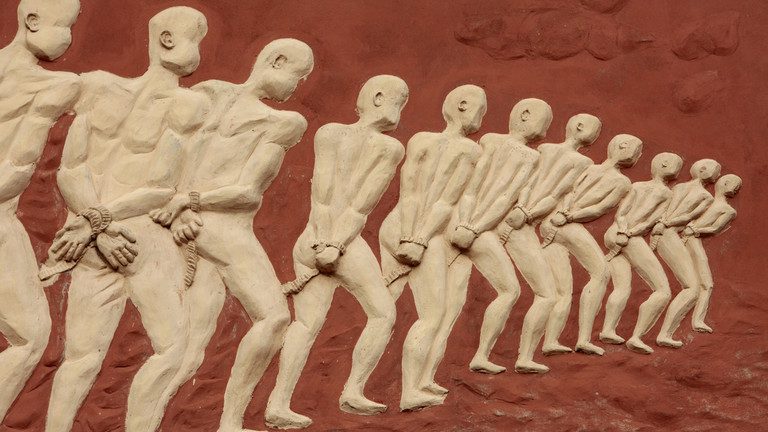Africa
Apology issued by British insurance company for involvement in slave trade

According to research, Lloyd’s of London was crucial in facilitating human transatlantic trade.
The British insurance provider Lloyd’s of London has expressed its regret for its close connection to the transatlantic slave trade and announced it will be allocating approximately £52 million ($63.8 million) to a series of projects in order to make up for its previous transgressions.
Lloyd’s, which started operations in 1688 during the height of the human trafficking trade, plans to invest £40 million ($49.1 million) in areas impacted by the slave trade and approximately £12 million ($14.7 million) on a diversity programme aimed at increasing the hiring of black and ethnic minority workers in the commercial insurance sector. Additionally, the company will provide bursaries for black students to pursue higher education in the UK.
Bruce Carnegie-Brown, Chairman of Lloyd’s, said in a statement on Wednesday, “We’re deeply sorry for this period of our history and the enormous suffering caused to individuals and communities both then and today.”
This action is the result of independent study determining that the 335-year-old insurance market contributed “significantly” to the 300-year transatlantic slave trade, which the UN has classified as the greatest forced migration in history.
Between 1500 and 1800, an estimated two million Africans perished while travelling to the Americas, where they were employed as slaves for forced labour.
RAED ALSO: Sultan of Sokoto and British High Commissioner talk about the impasse in Niger Republic
The largest slave-ship owners in the early 1800s were insured by Lloyd’s, which also enabled interactions between slave-ship captains, ship owners, and insurance underwriters, according to research released this month by Black Beyond Data, a Johns Hopkins University affiliate. The organisation also actively opposed the abolition of the slave trade throughout the British Empire in 1807, according to the results of the inquiry funded by the Mellon Foundation. According to Alexandre White, an assistant professor at Johns Hopkins University, the Black Beyond Data team looked through documents from Lloyd’s archive, including ledgers where insurers recorded policies for ships departing Liverpool as part of the trade.
In 2020, the company issued an apology for its past involvement in the slave trade and granted permission for the independent report, over which it maintained editorial control.
The British company responded to the results on Wednesday by saying that, although it cannot change the past, its present initiatives will deal with the trade’s aftereffects, such as inequality.
“We’re determined to address the inequalities that Black and ethnically diverse people still see and experience, which is why we’ve launched Inclusive Futures, a comprehensive programme of initiatives to help these people advance from the classroom to the boardroom,” said Bruce Carnegie-Brown.
Kehinde Andrews, a professor of Black studies at the University of Birmingham, has accused Lloyd’s of “reparations washing,” calling the action “completely inadequate.”
This is public relations speak for an apology and some promises, but it’s not a severe situation. Andrews was reported in The Guardian as saying, “You’re talking about massive amounts of wealth that they owe back to people.”
“If they were serious, they would be proposing a transfer of wealth to the descendants of the enslaved, not a diversity scheme for so-called ‘ethnically diverse’ people,” the professor was reported by the BBC as saying.
Midway through 2023, Lloyd’s of London reported a profit of almost $4.8 billion (£3.9 billion).
